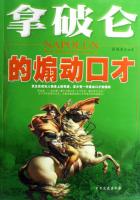In his " Contributions to the Edinburgh Review," he has a number of articles on metaphysical subjects.He has a long review, afterwards republished in the " Encyclopaedia Britannica," of Alison on Taste.He argues against the notion of beauty being a ****** sensation, or the object of a separate and peculiar faculty, and urges the difference of tastes as a proof of this: an analogous argument might show that there was no faculty to discern truth or moral good.He also opposes the idea of beauty being a real property of objects.He then expounds his own theory." In our opinion, then, our sense of beauty depends entirely on our previous experience of ******r pleasures or emotions, and consists in the <suggestion> of agreeable or interesting sensations with which we had formerly been made familiar by the direct and intelligible agency of our common sensibilities; and that vast variety of objects to which we give the name of beautiful become entitled to that appellation, merely because they all possess the power of recalling or reflecting those sensations of which they have been the accompaniments, or with which they have been associated in our imagination by any other more casual bond of connection." This theory differs slightly from that of Alison; but is not an improvement of it, and is liable to the same objections.In one point, he seems to have the advantage of the author he reviews.Jeffrey holds the perception of beauty " to be, in most cases, quite instantaneous, and altogether as immediate as the perception of the external qualities of the object to which it is ascribed." I believe that Alison is right when he says that there is a flow of imagination; but then there must be something to start it, and this something -- be it a color, a form, a sound, a harmony -- raises a feeling at once, and is entitled to be called beautiful.He maintains that objects are sublime or beautiful when, along with other qualities, {344} they act as " natural signs and perpetual concomitants of pleasurable sensations, or, at any rate, of some lively feeling or emotion in ourselves, or in some other sentient beings." I am inclined to think that beautiful objects act as signs, but they do so by suggesting ideas of the true and the good.
He has a review of Priestley, and in it examines materialism.He shows that " the qualities of matter are perceived, but perception cannot be perceived." " If the eye and the ear, with their delicate structures and fine sensibility, are but vehicles and apparatus, why should the attenuated and unknown tissues of the cerebral nerves be supposed to be any thing else?" "Their proposition is, not that motion produces sensation, which might be as well in the mind as in the body, -- but that sensation is motion, and that all the phenomena of thought and perception are intelligently accounted for by saying that they are certain little shakings in the pulpy part of the brain." There may be little shakings in the brain for any thing we know, and there may even be shakings of a different kind accompanying every act of thought or perception; but that the shakings themselves <are> the thought or perception we are so far from admitting that we find it absolutely impossible to comprehend what is meant by the assertion."He has a review of Stewart's " Life of Reid " and of Stewart's Philosophical Essays." He writes in the most laudatory terms of both, and of the Scotch philosophy generally.But he ventures to criticise them, and blames Reid for multiplying without necessity the number of original principles and affections: he sees no reason for admitting a principle of credulity or a principle of veracity in human nature, or for interpreting natural signs.
He commends his exemplary diligence and success in subverting the ideal system, but adds: " We must confess that we have not been able to perceive how the destruction of the ideal can be held as a demonstration of the real existence of matter," -- as if Reid had ever claimed that it did so, or as if he had not expressly rested our belief on body on the principle of common sense.He labors to show that mental science cannot bring with it any solid issues, and represents " the lofty estimate which Mr.Stewart has made of the <practical> of his favorite study as one of those splendid visions by which men of genius have been so often misled in the enthusiastic pursuit of {345} science and virtue." No doubt psychology cannot directly add to our animal comforts, as chemistry can, but surely when we know approximately and <provisionary> (which is all we know in chemistry) the laws of the senses, of memory, of association, imagination, judgment, reasoning, feeling, and conscience, we may get <practical> benefits of another kind in being better able to regulate our own minds and influence the minds of others.On one point he seems rather to have the advantage of Stewart.In his review of Stewart's " Life and Writings of Reid," he maintains that it is principally by <experiment>, and not by mere observation, that those splendid improvements have been made which have erected so vast a trophy to the prospective genius of Bacon." Stewart replied, in his " Philosophical Essays " and "Dissertation," showing that experiment is a species of observation and that mind can be and has been experimented on: " Hardly any experiment can be imagined which has not already been tried by the hand of nature." But Jeffrey has a truth which however, he has not elaborated successfully.The physical investigator has much more accurate tests than the mental philosopher in the means which modern science has provided for weighing and measuring the results; and this, Iapprehend, is the main reason for the fact that there is less disputing about physical than mental laws.On the other hand, we have more immediate, constant, and familiar access to our thoughts and feelings than we have to any facts of natural philosophy; and thus our knowledge of mind, scientific and practical, may, without being so much observed by the vulgar, be as useful as our knowledge of physics, as it may at all times be restraining and constraining us, though unconsciously, and enabling us to sway the minds and actions of others.{346}















